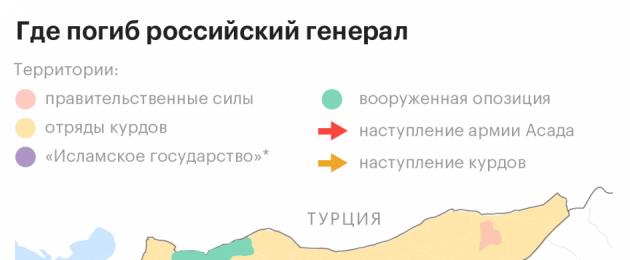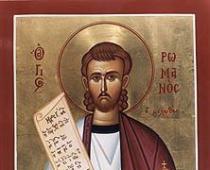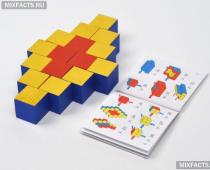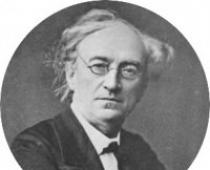Death Russian lieutenant general Valeria Asapova in Syria indicates the beginning of the active phase of the operation to capture Deir ez-Zor, experts say. Such losses are inevitable and their account is not closed, RBC interlocutors warn
Valery Asapov (Photo: Yuri Smityuk / TASS)
First General
On Saturday, September 23, in Syria Valery Asapov. A day later it was officially announced Russian Ministry defense The command post of the Syrian troops where he was located came under mortar fire from militants of the Islamic State (IS) terrorist organization banned in Russia, the military department reported: “The senior group of Russian military advisers, Lieutenant General Asapov, assisted the Syrian commanders in managing the operation liberation of the city of Deir ez-Zor.” As a result of a sudden attack by militants, Asapov, according to the ministry, was mortally wounded.
In the 1990s, Asapov participated in the operation to restore constitutional order in Chechnya. In 1995, he was the chief of staff of a battalion in Grozny and received a gunshot wound to the leg there. Later, he served as part of the peacekeeping forces in Abkhazia, commanded a motorized rifle brigade in the Eastern Military District. According to the Ministry of Defense of Ukraine, in March last year, Asapov commanded the First army corps in Donbass on the side of the DPR, the 112 Ukraine TV channel reported in March 2016. In the same year, by decree of the President of Ukraine, Asapov was added to the sanctions list “for actions that violate the rights and freedoms of man and citizen.”
While serving in Syria, the general always tried to minimize the risk of losses, a source in the Ministry of Defense, who knew Asapov closely, told RBC. “He didn’t make any crazy decisions, like attack and that’s it,” recalls RBC’s interlocutor. According to him, the death of the general is connected, among other things, with the poor work of Syrian intelligence. “The Syrian military does not always fulfill its obligations: they are sluggish and work poorly, including in the reconnaissance area. We have many quote-unquote allies who help that side,” added the RBC source. The Ministry of Defense will adjust actions in Syria, he emphasized. “Approaches are being reviewed, steps will be taken, and corresponding conclusions will be made,” RBC’s source clarified, especially noting that the intensity of the fight against IS will not be reduced.
Expedited operation
According to official data, Lieutenant General Asapov is the 38th Russian serviceman killed in Syria. In early September, after IS militants shelled a convoy, two servicemen were killed, also in the province of Deir ez-Zor.
The human losses were caused by the accelerated progress of the operation to capture Deir ez-Zor: a few weeks ago the intensity of fighting in this area increased, he noted Chief Editor magazine "Arms Export" Andrey Frolov. “In addition to the work of our Aerospace Forces (VKS) in the air on the ground, the Russian military coordinates and advises the Syrians. Therefore, the likelihood of senior officers appearing in that area and, accordingly, their death increases,” he added.

The Russian Ministry of Defense said that Deir ez-Zor will be completely liberated by the end of this month. So far, the city is 85% under the control of Syrian troops, military department official Igor Konashenkov reported last week.
Deir ez-Zor is considered the center of the Syrian oil industry. It was the seizure of this region in 2014 that helped IS provide itself with money through the illegal sale of oil, RT reported. Today, about 80% of the oil fields in the province are the Konoko, Omar, Jafra, Ezba and Tanak fields. Only the At-Tayem oil field is in the hands of government troops. Besides oil in Deir ez-Zor. The largest deposit is located in Konoko. Now it has been partially destroyed by Islamists, but previously it was possible to produce up to 2 million cubic meters. m per year, Amin Al-Hamid, a representative of The Syrian Gas Company in Deir ez-Zor, said earlier
Taking so big settlement, like Deir ez-Zor, is in itself a major military operation, comments reserve colonel Andrei Payusov. “Accordingly, after the completion of operational planning, work begins directly in the troops. It goes without saying that our specialists work directly in combat formations Syrian army. This means they are exposed to the same risk as Syrian soldiers,” he said.
Valery Asapov worked at the headquarters of the 5th assault corps of the Syrian Arab Army, said reserve colonel, editor-in-chief of the Arsenal of the Fatherland magazine Viktor Murakhovsky. This is the main attack force in the province of Deir er-Zor, which provided access to the city, and is now crossing the Euphrates with access to the eastern bank of the river, where a significant part of the gas and oil fields are located, the military expert explained. “The militants have mortars, the reach of which from the line of contact to the rear is several kilometers. The death of a commander is not a phenomenal case; it is impossible to exclude such situations,” concluded Murakhovsky.
Focus East
Deir ez-Zor was surrounded by militants for more than three years. Government troops broke through its blockade earlier this month, on September 5, with the support of the Russian Aerospace Forces. In fact, in two weeks, Assad’s army and its allies managed to march through the desert to besieged Deir ez-Zor and reunite with the forces of the government garrison - the 137th brigade of the Syrian Armed Forces, consisting of 4 thousand people. Since 2014, the garrison has held the defense of most of the city, as well as the military airfield.
Simultaneously with the Syrian army, the Syrian Democratic Forces (SDF), which includes the Kurdish self-defense units YPG and YPJ, are conducting an active offensive from the north towards Der ez-Zor. The attackers are supported from the air by aircraft of the international coalition led by the United States. The main forces of the SDF were sent to besiege the city of Raqqa (the self-proclaimed capital of the Islamic State in northern Syria): Kurdish troops have been trying to recapture the city from the terrorists for several months. However, due to the rapid advance of the Syrian army to the east of Syria, part of the Kurdish forces was transferred to the eastern front: on September 9, the SDF with its coalition allies began their offensive on Deir ez-Zor, actively clearing the territory on the left bank of the Euphrates from militants in order to contain the advance Assad's army to the east. Nevertheless, on September 18, the infantry of the Syrian army, together with tanks, crossed over a pontoon crossing to the eastern bank of the Euphrates.
The Russian general secretly led the armed forces of the so-called DPR, and then died in Syria. Details of General Asapov's mission in Donbass are revealed by Reuters.
In the fall of 2015, pro-Russian fighters in eastern Ukraine were introduced to their new commander, an elderly man with a mustache who, like those who had held the post before him, used the call sign “Tuman.” Like his predecessors, he appears to have been from Russia. He signed the documents as General Primakov.
When, two years later, he died during a business trip to Syria, it turned out that his name was also false. It was a trick necessary to hide key role Russia in a conflict that Moscow and pro-Russian separatists present as a spontaneous uprising of local residents.
The fact is that Valery Asapav was a Russian general who worked undercover.
At the same time, as is known, the Kremlin has repeatedly denied that it provides military assistance to the separatists.
Five militants independently told Reuters reporters that Asapov was the commander of the armed forces in the self-proclaimed Donetsk People's Republic. As two interlocutors clarified, Asapov commanded its key unit - the First Army Corps.
Asapov’s younger brother Vyacheslav also confirmed that his brother was in Ukraine.
“He was there. The whole year. How did you feel about this? Normal, like a military man,” he said shortly after his brother’s funeral.
In response to journalists’ request to comment on Asapov’s story, the Russian Ministry of Defense refused.
Three separatist fighters said Asapov was not the first general to be sent to command the troops, and that the rotation of Russian commanders of the separatist army continues to this day.
Asked whether the DPR Defense Ministry had any military role, a senior separatist officer told Reuters:
“No, the Ministry of Defense is engaged in political and humanitarian activities.”
“We were told that the commander had arrived to see us. We stood up and introduced ourselves,” recalled another separatist officer.
Among the separatists, many officers knew that Asapov was a Russian general, he said.
“This was already clear... If Russia sends aid and shells here, then we need to make sure that it is not stolen.”
The officer saw that Asapov signed documents with the surname Primakov; he learned his real name only when he saw messages about his death with photographs.
The deputy commander of the separatist forces and at the same time their press secretary, Eduard Basurin, told reporters that Asapov was not in Donbass, and they met in 2015 in Moscow. However, Basurin was present at Asapov’s funeral on September 27 last year.
Asapov, whom Ukrainian military intelligence calls a war criminal for his leadership position in separatist forces, appeared on the Ukrainian authorities' sanctions list in 2016.
While on assignment in Ukraine, Asapov formally served in Rostov-on-Don, 60 kilometers from the Ukrainian border. Around the time Asapov was finishing his assignment in Ukraine in the summer of 2016, Putin promoted him to the rank of lieutenant general, according to a decree published by the Kremlin. In Donbass, Asapov wore a uniform without identification marks.
Asapov's story once again shows Moscow's more decisive intervention in the conflicts in Ukraine and Syria than Moscow is willing to admit. It also demonstrates the inner workings of a “hybrid warfare” strategy that allows Russia to gain power by putting its own people in charge of local irregular forces without taking on the risks that a formal ground operation with large numbers of troops would entail.
On September 24, the Russian Ministry of Defense confirmed the death in Syria of the senior group of Russian military advisers, commander of the 5th Army of the Eastern Military District of the Russian Armed Forces, Lieutenant General Valery Asapov. The military leader died during the operation to liberate the Syrian city of Deir ez-Zor from Islamic State militants (banned in Russia) and was posthumously “represented for a high state award.”
Only officially confirmed losses
The department’s report notes in dry military language that Lieutenant General Valery Asapov was fatally wounded by a mine explosion “as a result of a sudden mortar attack by ISIS militants” while “he was at the command post of the Syrian troops, assisting Syrian commanders in managing the operation to liberate the city.” .
There are no additional details of what happened, just as there is no exact date of the Russian’s death. According to Kommersant’s source, this happened on September 23 and “the general was literally torn apart, there was nothing left of the man, since he was on the front line.” On September 16, relatives of a contract soldier from Bratsk, Vladimir Tarasyuk, who died in Syria, told the media that “a general and a colonel” died in the car with him.
The radio station “Moscow Speaks” was the first to report Asapov’s death: at the headquarters of the 5th Army they said that when a shell hit the command post, two colonels were killed along with the general. They also wrote on social networks about the death of the translator, but the military department did not officially comment on this information.
Later, a source from the radio station “Moscow Speaks” voiced a version that immediately appeared on Twitter: Valery Asapov could have become a victim of betrayal.
Officially, Asapov became the 38th Russian to die in the SAR since the beginning military operation, and the most senior. In February 2017, during active hostilities in the Palmyra area, Major General was seriously injured Russian army Pyotr Milyukhin - in the explosion he lost both legs and an eye. At that moment, he was directly subordinate to the commander of the Western Military District, Andrei Kartapolov, who heads the Russian group in Syria.
For those who follow the war in Syria, the work of Russian military advisers outside military facilities in Khmeimim and Tartus is not news. Moreover, it began before the Ministry of Defense officially recognized the actions “on the ground” of the GRU special forces and the Special Operations Forces. Officially, the command structure of the Russian group in Syria consists of three levels.
The first is the combat control group in National Center management of the country's defense in Moscow. Engaged in collecting and processing information and reporting daily to senior Russian military leadership.
The second is command of a group of troops in Syria. It is responsible for the coordinated actions of the Aerospace Forces and various ground units, and also interacts with regional military centers in Jordan, Turkey, Israel, and Qatar.
The third is just operational groups of advisers in tactical directions from senior officers and generals. They work with formations of the Syrian armed forces - corps, divisions, brigades, and also help plan and coordinate operations involving various pro-government formations. A few months ago, a photo appeared on social networks of a certificate and an order awarding the medal “For Special Operations” to Simon Ibrahim Al-Wakil (one of the commanders of the National Defense Forces militia) signed by the commander of the Syrian 5th Assault volunteer corps- Commander of the 49th Combined Arms Army of the Southern Military District of the Russian Armed Forces, Lieutenant General Sergei Sevryukov.
Former commander of the 58th Army Armed Forces Russian Federation, Lieutenant General Viktor Sobolev, especially for the site:
YouTube
In fact, there are no rules that would regulate the number of combat guards of a military adviser and his location in the disposition of troops. The distance at which the command post should be deployed is regulated by statutory documents, but the configuration of the front is constantly changing, especially during combat operations against irregular formations. Accordingly, the situation is changing quickly. The commander, if he is an adviser, must be close to the one he is advising - the commander of the division or corps. Let's say, in South Ossetia, the army commander, Lieutenant General Anatoly Khrulev, was wounded during shelling of a convoy. In principle, he should not have been there, but he wanted to see everything with his own eyes.
Of course, the death of the chief adviser and army commander is an extraordinary case, but, unfortunately, the situation in war changes quickly, especially when it comes to the Syrian Desert. But the enemy and his special services are not asleep; naturally, they want to inflict damage, especially since with good aiming from mortars it is possible to conduct fairly accurate fire at targets several kilometers from the line of direct fire contact.
Almost all of our army and even district commanders have been through Syria. On the one hand, they, of course, gain invaluable combat experience. As Suvorov said, for one beaten they give two unbeaten. On the other hand, in my opinion, it is not very good that commanders abandon their formations and go for quite a long period of time to lead operations that are carried out by someone unknown - Syrian army units, or what is left of them, militias, etc.
The situation is changing quickly
In Syria, the front line is everywhere - so the probability of getting mortally wounded there anywhere is quite high. Yes, in time civil war Many Iranian brigadier generals of the Islamic Revolutionary Guard Corps were killed in Syria. However, “brigadier general” is a rank that has no analogues in Russia, something between a colonel and a major general. That is, this is the senior officer rank, the primary rank of general in a number of armies of the world. Another thing is that eastern armies differ from western ones mainly in that in the first great importance has a faith factor, namely martyrdom. For example, in the Islamic tradition, the grandson of the Prophet Muhammad, Imam Hussein, bears the title “Lord of Martyrs.” And the person who died for his faith is instantly likened to Imam Hussein, he becomes a national hero.
Also in Syria, American soldiers who advise fighters of the Kurdish-Arab alliance “Syrian Democratic Forces” in battles with the Islamic State and themselves take part in combat operations have repeatedly died. For example, in 2016, the Pentagon reported that a soldier was fatally wounded after detonating an improvised explosive device near the city of Ain Issa in Raqqa province. Another thing is that when training and commanding the local population fighting against radical groups, the Americans rely on their special forces soldiers.
The circumstances of the death of Russian Lieutenant General Valery Asapov in Syria have become known. According to the Damascus Bulletin Telegram channel, the reason for the shelling of the command post where the military adviser was located was betrayal.
Asapov took an active part in managing the operation to liberate the province of Deir ez-Zor. According to published data, on September 23, the volunteer units of the Katarji brothers, in the midst of the battle, moved away from the command post of the Syrian army, after which ISIS terrorists opened heavy fire on it.
The administration of the Damascus Herald suggests that it was the fighters of the paramilitary detachment who gave the radicals the exact coordinates of this facility, where the Russian lieutenant general was located at that moment.
Valery Asapov participated in the organization of offensive actions of the Syrian army for several months. He was on the front line, demonstrating courage and heroism. Probably, the terrorists aimed to kill the Russian military man, thanks to whom a number of important operations were carried out.
It has not been officially confirmed whether the detachment of the Katarzhi brothers actually collaborated with the terrorists, but the fact remains that they left their positions, abandoning their allies. Units of the Syrian army, frankly speaking, are Lately behave in the same way - they are cowards, wait for something, retreat, thereby giving terrorists the opportunity to strengthen their positions.
The SAR government troops clearly forget that in the province of Deir ez-Zor there is a large number of oil and gas fields, which are vital for the reconstruction of the Syrian economy. Therefore, it is in their interests to clear the region of militants as quickly as possible.
As is known, Russian volunteers and military specialists, who are actively supported by the Aerospace Forces, take part in the crossing of the Euphrates River and the battles on its left bank. The operation is led by advisers from the Russian Federation. Our compatriots are selflessly fighting the militants of the terrorist caliphate, which cannot be said about the Syrian units.
According to political scientist Alexander Asafov, the command of the Syrian army is overly cautious and slow in making fundamental decisions. Instead of moving forward without hesitation, SAA units stand in one place. This could indeed result in the loss of key oil fields that other parties to the conflict are targeting.
Syrians should not expect their allies to do all the work for them. Russian Aerospace Forces, military advisers and volunteers courageously and successfully resist terrorists, however, without the active assistance of the SAA, the operation in the province of Deir ez-Zor could drag on for months.
Asapov was reported to have died during a mortar attack on Deir ez-Zor. At the same time, the publication’s source assures that the general was literally torn apart: “There was nothing left of the man, since he was on the front line,” Newsru.com quotes him as saying.
According to the radio station "Moscow Speaks", two colonels died along with Asapov. Meanwhile, on the Facebook page of the Conflict Intelligence Team (CIT), a group of independent investigations of military conflicts, it is noted that some details in the reports of different sources who spoke about the incident differ.
Thus, the unofficial account of the Moscow traffic police department on Instagram claimed that only the translator died along with the general, and the Ministry of Defense of the Russian Federation did not disclose the date of death and did not mention any other victims.
At the same time, the sister of another Russian serviceman who died in Syria, Sergeant Vladimir Tarasyuk, according to CIT, said that a general and a colonel died along with him, and this happened on September 16.
The death of General Valery Asapov became known on September 24. As CIT notes, in the morning messages about this appeared on the social network VKontankte, a few hours later the information was spread by the unofficial account of the Moscow traffic police department on Instagram, then by the radio "Moscow Speaks", after which the information was officially confirmed by the Russian Ministry of Defense.
According to Kommersant, Asapov served in Syria less than a year. He was in the command post of the Syrian troops - helping Syrian commanders in managing the operation to liberate Deir ez-Zor, the military reported. In early September, the city was recaptured from Islamic State militants, but they continued to shell it. The Russian general became a victim of one of these attacks.
According to Kommersant's calculations, Asapov became the 38th Russian serviceman to die in Syria since the start of the Russian Aerospace Forces operation in this country. According to reports from the Russian Ministry of Defense, in 2017 the death toll was 10 people. The department noted that the general was posthumously nominated for a high state award, without specifying which one. Previously, participants in the operation in the SAR were awarded the title of Hero of Russia and the Order of Courage.
Kommersant writes that Asapov already has the Order of Courage. He was also awarded the Order of Military Merit, the Order of the Veteran's Cross, II degree, and the Medal for Military Merit. In 2013, President Vladimir Putin awarded Valery Asapov the Order of Merit for the Fatherland, IV degree, for his participation in international exercises as commander of the 37th Separate Guards Motorized Rifle Brigade of the 36th Army of the Eastern Military District.
- In contact with 0
- Google+ 0
- OK 0
- Facebook 0








